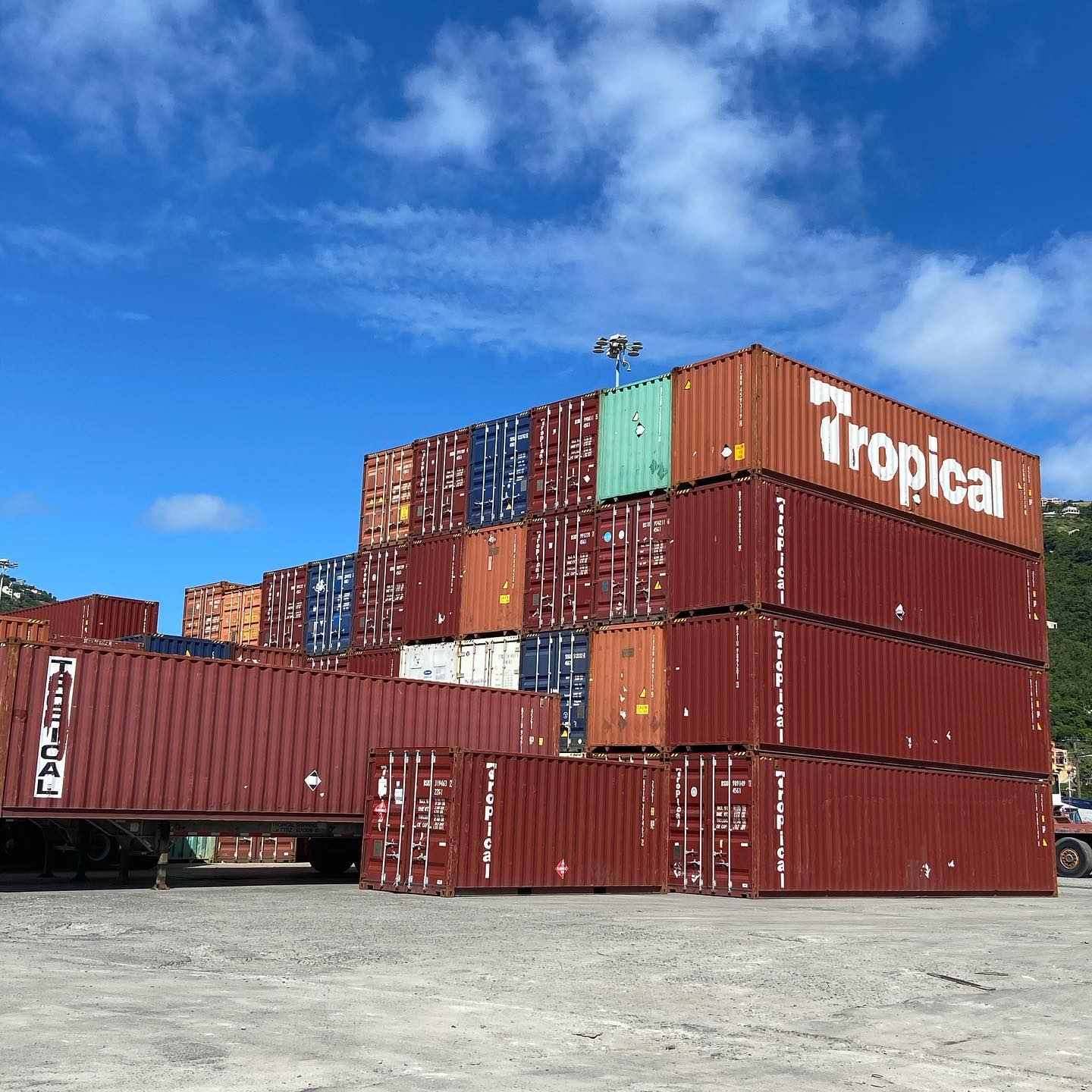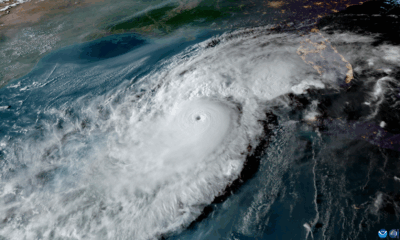Business
Four women recognised for “longstanding contribution” to VI ICT

By MERRICK ANDREWS, Online News Editor
(JTV News) — Four women have been recognised by the Office of Gender Affairs for their longstanding contribution to the Virgin Islands in the field of Information Communications Technology (ICT) in observance of International Women’s Day under the theme DigitAll: Innovation and Technology for Gender Equality.
The women are Director of the Department of Information Technology Annabelle Skelton-Malone; Senior Database Administrator at the Financial Services Commission (FSC) Karen Liburd-Anselm; Information Technology (IT) Manager at Roadtown Wholesale Trading, Limited (RTW) Irma Harrigan; and Biomedical Engineer Manager at the BVI Health Services Authority (BVIHSA) Candia Rabsatt-Thompson.
According to a government release, Skelton-Malone manages and directs the department’s operation, ensuring that efficient and effective technological services are provided throughout the Government.
Skelton-Malone started the department in 1989, under the stewardship of the then Financial Secretary Robert Mathavious, with two officers including herself, the release said.
“Under her leadership, the department implemented several technologies that have enhanced Government’s operations. Mrs. Skelton-Malone has overseen the implementation and upgrades of the Government Accounting System, the rebranding of the Government’s Websites to a central website, the expansion of network connectivity to government entities located throughout Tortola and the major sister islands along with the digitation of School Administration for all public schools through the implementation of SASI, which has since been migrated to PowerSchool,” the release said.
Liburd-Anselm has worked at the commission since 2003 and is celebrating 20 years as one of the few women in her field, according to the release.
“She is responsible for ensuring that the FSC has a reliable, robust and secure database infrastructure, environment all year round,” the release said.
“As a Database Administrator, this leading lady in technology is accountable for a complex, multi-platform database environment which includes Microsoft SQL Server and MySQL utilised in mission-critical enterprise applications such as VIRRGIN, AML/CFT Returns and MFAR Systems. She is also one of the persons responsible for providing technical support for the VIRRGIN application which is the system that makes it easy for Registered Agents to register companies, pay annual fees and make changes following the BVIBC Act,” the release added.
Harrigan joined RTW in 1983 as a Trainee Programmer and was promoted to Senior Analyst/Programmer after graduating from Salisbury State University with a Computer Information Systems degree. In 1993, Harrigan attained the IT Manager position she currently holds.
“Irma Harrigan is responsible for managing the day-to-day operations of the IT team, ensuring the availability and reliability of systems and networks, managing technology vendors, and implementing new technologies and processes to improve the efficiency and productivity of the company,” the release stated.
At a young age, Rabsatt-Thompson displayed an interest in electronics and technology. After graduating high school, she enrolled at DeVry University and obtained a bachelor’s degree in Electronics Engineering Technology and a certificate in Biomedical Equipment Technology, according to the release.
At the BVIHSA, Rabsatt-Thompson, according to the release, is “responsible for Healthcare Technology Management as it relates to the installation, calibrations, corrective maintenance and preventative maintenance of medical equipment. The medical equipment must maintain the manufactures standard of a high level of accuracy, reliability, and durability as it relates to patient care and diagnoses. The equipment must also be safe for both clinical staff and patients”.
Business
Caribbean Shipping Secures Exemption from U.S. Port Fees on Chinese-Built Vessels

The Office of the United States Trade Representative (USTR) has exempted Caribbean shipping routes from newly proposed port fees on Chinese-built vessels. This decision follows concerted advocacy by the Caribbean Private Sector Organisation (CPSO) and regional stakeholders, who warned that the fees could have devastating economic consequences for the Caribbean.
The USTR’s initial proposal aimed to impose fees of up to $1.5 million per port call on vessels constructed in China, as part of a broader strategy to counter China’s dominance in global shipbuilding and bolster the U.S. maritime industry. However, the policy faced immediate backlash from Caribbean nations, where a significant portion of shipping relies on Chinese-built vessels.
Dr. Patrick Antoine, CEO and Technical Director of the CPSO, testified at a USTR public hearing, emphasizing that over 90% of CARICOM’s trade in goods depends on maritime transport. He warned that the proposed fees could lead to a 60% increase in shipping costs to and from the Caribbean, severely impacting economies where more than 50% of the ships are Chinese-built.
The potential repercussions were particularly alarming for smaller Caribbean states like Antigua and Barbuda, Dominica, Grenada, St. Lucia, and St. Vincent and the Grenadines, which rely heavily on short-sea shipping routes serviced by Chinese-built vessels. Prime Minister Gaston Browne of Antigua and Barbuda expressed concern that shipping a container could increase by $3,000 to $4,000, leading to an 8–10% rise in consumer prices and pushing inflation rates to potentially 12–14%.
In response to these concerns, the USTR revised its policy to exempt ships operating between U.S. domestic routes, the Caribbean, U.S. territories, and Great Lakes ports from the new fees. This adjustment aims to prevent inflation, supply chain disruptions, and surging trade costs in the region.
The exemption has been met with relief across the Caribbean. Dr. Antoine expressed gratitude to the USTR for recognizing the unique challenges faced by Caribbean economies and for taking steps to safeguard regional trade stability.
While the exemption provides immediate relief, regional leaders and industry stakeholders continue to monitor the situation closely. They advocate for long-term strategies to enhance the resilience of Caribbean supply chains and reduce dependency on external factors that could disrupt trade.
Business
BVI Braces for Ripple Effects as U.S. Stock Market Sheds $5 Trillion

In just three weeks, the U.S. stock market has lost a staggering $5 trillion in value, a downturn that could have significant implications for the British Virgin Islands (BVI), where the U.S. dollar is the official currency. As economic uncertainty grips the global financial system, concerns are mounting over how this sharp decline might impact the BVI’s economy, particularly in the areas of tourism, offshore financial services, and overall consumer confidence.
With the U.S. being the primary source of visitors to the BVI, any financial squeeze on American households could lead to a reduction in travel plans. A weaker U.S. stock market often means tighter budgets for vacationers, which could result in lower visitor numbers, reduced hotel bookings, and fewer yacht charters—critical sectors for the territory’s economy.
As one of the Caribbean’s leading offshore financial hubs, the BVI is deeply connected to global markets. A drop in stock values can shake investor confidence, potentially leading to slower financial transactions, reduced incorporations, and a cautious approach from high-net-worth individuals who use BVI-based structures for wealth management.
With the BVI using the U.S. dollar, economic shocks in the U.S. can quickly affect the cost of goods and services in the territory. A weaker U.S. market could lead to fluctuations in inflation, making imports more expensive. For a territory that relies heavily on imported goods—from food supplies to construction materials—this could put additional pressure on businesses and consumers.
The BVI government will likely keep a close watch on these developments, as a prolonged U.S. market downturn could impact tax revenues, business activity, and overall economic confidence. Policymakers may need to explore ways to strengthen economic resilience, whether through increased regional trade, diversification efforts, or measures to support local businesses in uncertain times.
While the full impact of this financial slide remains to be seen, one thing is certain: the BVI, like many other U.S. dollar-dependent economies, is paying close attention to Wall Street’s turbulence and preparing for potential economic headwinds.
Business
Tropical Shipping Warns of Severe Impact on Caribbean Trade from Proposed U.S. Tariff on Chinese-Built Vessels

A proposed tariff set to be enacted by the United States government next month threatens to unravel decades of economic ties between the U.S. and the Caribbean. The new policy, which would impose a hefty $1 million port fee on any Chinese-built vessel calling at U.S. ports, could raise shipping costs by thousands of dollars per container, potentially shifting the flow of goods between the U.S. and the Caribbean to foreign competitors. For Caribbean exporters, this tariff would be a major blow, raising the cost of goods and disrupting established trade relationships that total $92.3 billion annually.
While the United States government has framed the proposal as a trade measure aimed at countering unfair practices, it will have profound implications for Caribbean economies that depend on efficient, cost-effective shipping services to move goods. Most of the vessels serving the region were built in China, meaning the vast majority of Caribbean trade will be directly impacted by this policy.
For Caribbean businesses, the stakes are high. With rising shipping costs, many companies could be forced to either absorb the additional costs or pass them along to consumers. Both scenarios are unsustainable. Higher prices on exports to the Caribbean would make American goods less competitive, pushing businesses in the region to turn to other nations for supplies. The result? U.S. exports to the Caribbean could plummet, damaging a $92.3 billion trade relationship and costing both U.S. and Caribbean businesses valuable market share.
The proposed tariff will also hurt the livelihoods of many Caribbean workers who rely on a robust, affordable shipping network to support industries like agriculture, manufacturing, and retail. Rising shipping costs could result in fewer goods reaching the islands, driving up prices and making it harder for businesses to operate. For smaller Caribbean economies, the impact could be even more severe, as many rely heavily on U.S. imports for basic goods and supplies.
Tropical Shipping, a key player in U.S.-Caribbean trade, has raised its voice against the U.S. Trade Representative’s (USTR) proposal, warning of the far-reaching consequences for both American and Caribbean workers. “This tariff will not only raise costs for Caribbean businesses but will hurt American workers as well,” said Tropical’s President and CEO in a letter to the USTR. “American workers in port operations, warehousing, trucking, and logistics will feel the impact, while exporters from the U.S. will find themselves less competitive compared to foreign rivals.”
At its core, the proposal threatens to destabilize Caribbean economies by driving up the cost of goods exported from the U.S. and weakening the region’s reliance on U.S. ports. The Caribbean is the United States’ largest trading partner in the Western Hemisphere, and this tariff would directly reduce the volume of goods passing through U.S. ports, ultimately harming jobs in both regions. It would also make it increasingly difficult for Caribbean countries to maintain consistent access to the goods they need, further straining already delicate economic conditions.
The Caribbean’s stake in this decision is clear. Tropical Shipping is urging businesses and individuals across the region to submit comments to the USTR, outlining how this tariff would affect their operations. This simple step could be a turning point, helping to prevent a trade policy that could ultimately disrupt the flow of goods between the U.S. and the Caribbean.
For more information about the USTR Section 301 proposal and how to submit your comments, visit the USTR Public Comment Page.
Tropical Shipping remains committed to protecting the interests of both Caribbean businesses and American workers, recognizing that both regions are interconnected in ways that cannot be ignored. The outcome of this decision could have lasting consequences for U.S.-Caribbean trade — a relationship that is essential to both economies’ continued prosperity.
-

 Uncategorized3 days ago
Uncategorized3 days agoBritish Virgin Islands Regulators Move to Wind Down Bank of Asia (BVI) Limited
-

 Entertainment15 hours ago
Entertainment15 hours agoK’Meeya Chung and Dakarai Wheatley-Adams Crowned Miss and Mr. HLSCC 2025
-

 Entertainment3 days ago
Entertainment3 days agoNeil Frett Named Honouree as 71st Virgin Islands Emancipation Festival Officially Launched
-

 Entertainment2 weeks ago
Entertainment2 weeks agoFive Students to Compete in Mr. & Miss HLSCC Pageant on June 1
-

 Local News3 days ago
Local News3 days agoBVI U19 Rugby Squad Departs for Dominican Republic Development Tour
-

 Local News1 day ago
Local News1 day agoCaribbean Braces for Active 2025 Hurricane Season
-

 Uncategorized7 days ago
Uncategorized7 days agoChantel Malone Leaps to First Place Amid Headwinds at Tucson Elite Classic:
-

 Education4 days ago
Education4 days agoTwelve Primary Schools Advance to Final Round of 2025 Spelling Bee


























